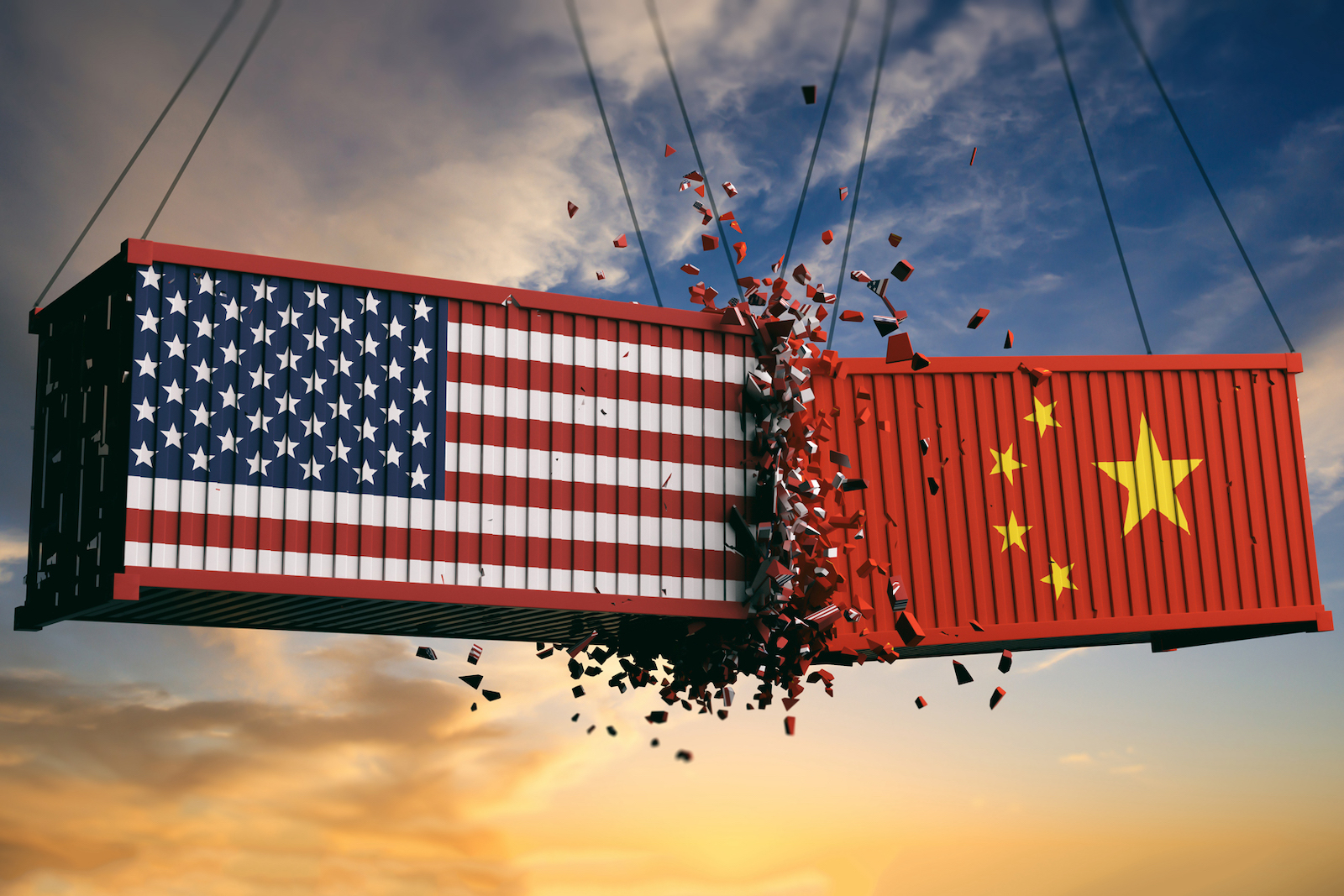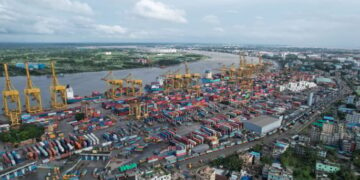Washington, DC, April 9, 2025
In an aggressive and combative move, President Donald Trump imposed a sweeping 104% tariff on Chinese imports, one of the strongest economic measures so far in the US-China trade war. Impacts of the tariffs, effective this Wednesday, are expected to be felt in global markets as well as businesses that depend on Chinese manufacturing
It is in response to China’s recent levies on US products, primarily agricultural products as well as technology, as “unfair economic aggression” labeled by Trump. White House officials have framed the new action as necessary to level the playing field, as well as protecting American jobs, industries, as well as intellectual property.
Targeting Low-Value Imports and E-commerce
Aside from the across-the-board tariff boost, the administration is tripling the tariffs charged on products worth less than $800 – a group that mostly comprises those cheap electronics, clothes, and home products often purchased on e-commerce websites. Low-value imports have been the bread and butter of US e-commerce moguls as well as of small businesses relying on cheap, high-turnover products sourced in China.
Through closure of rules on this line, the administration is attempting to close what it describes as the “loophole exploitation” of Chinese merchants in undermining America’s price for its products.
“We’re not just talking about trade, we’re talking about national power, security, and independence,” Trump announced at a White House news conference. “For far too long, our markets have been overrun with cheaply priced, subsidised products that hurt American workers and undermine our businesses. Today, America is rising up.”
Impact on Businesses in the US
US companies as well as consumers stand to be impacted by the broad tariffs. Companies ranging from automotive and electronics firms to construction companies and fashion businesses are gearing up for the increase in costs as their importers look for alternative producers or absorb higher costs.
Retailers who base their businesses on just-in-time inventory and expedited shipping will struggle to keep stock without increasing their prices. Online marketplaces like eBay and Amazon, with their millions of third-party China-based merchants, will face severe disruption in product listings, shipping times, and price competitiveness.
Those who operate drop-shipping businesses or purchase bulk stocks at China’s e-commerce platforms like Alibaba and Temu will be impacted the most.
There is no sugarcoating it: We’re facing a gigantic cost shock, declares Carla Mendes, an analyst with Global Market Watch. “From smartphones to athletic shoes, everything will be pricier, and the consumer will be taking on most of the weight.”
Global Implications and Market Fluctuations
The news has already made its ripple effect in the global markets. Wall Street dipped at the opening on Tuesday, with technology shares and retail leading in declining on fears of higher production costs and dwindling consumer demand. Asian markets declined as well, mirroring skepticism about how China would respond.
Read More: Pran-RFL Group enters Solar Energy arena with 100 MW project for H&M Supply Chain
Beijing officials condemned the tariffs as “economic coercion” and threatened “strong and proportionate” countermeasures. Measures have yet to be announced, but predictions include additional US export tariffs, administrative measures on US businesses in China, or controls on key raw material inputs and component technology.
It is an economic game of brinksmanship at high stakes, according to Brookings Institution international trade specialist Dr. Hannah Lee. “No one is willing to blink, but the global economy will be at risk of suffering significant collateral damage if this escalates to an open trade war.”
A Strategic Gambit in an Economy War
This is the latest step in a continuing effort by President Trump to wean America off foreign production, and that of geopolitical competitors China especially. Trump has doubled down on protectionism during his second term in office and encouraged further investment in domestic production via subsidies, tax incentives, and reshoring programs.
Advocates believe that these measures are necessary so America can reclaim its manufacturing dominance and reduce national exposure in sensitive areas like semiconductors, energy, and defense circles. Opponents warn, however, that the eventual long-term impact might be inflation, retaliatory trade restrictions, and strained diplomatic channels.
While the world holds its breath, the actual impact of this tariff hike will be seen in the weeks to come, on grocery shelves, in corporate suites, and on American dinner plates.
All the while, businesses are racing to adapt, consumers are planning for higher costs, and the global economy is preparing for another bout of uncertainty in an increasingly fractured market environment.


















